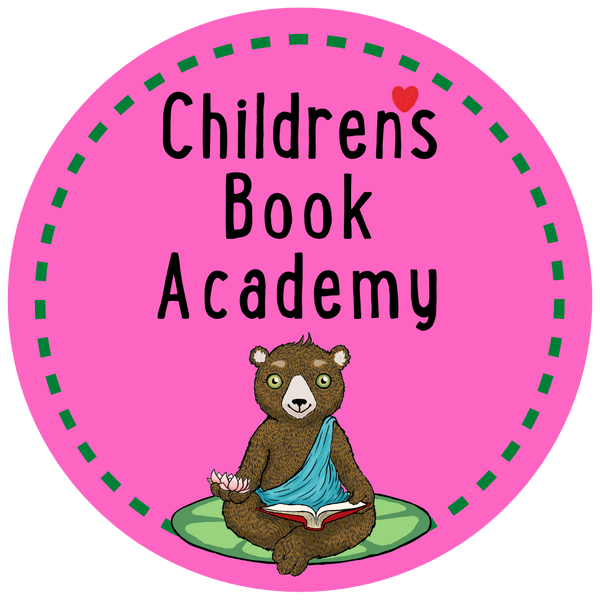“Don’t write in rhyme” was one of the first things I was told as I dipped my eager toes into kidlit waters. I heard it over and over—from kidlit authors, bloggers, instructors, critique partners, and peers online—well before I wrote Whole Whale, my debut picture book, which is in rhyme.
But why not write in rhyme? After all, rhyming picture books are still being published and do quite well. In What If… (by Samantha Berger and Mike Curato) and Dozens of Doughnuts (by Carrie Finison and Brianne Farley)—two of my favorites from recent years—the rhyme heightens the story, not to mention my admiration for the writer’s artistry.
Common reasons for discouraging rhyme include:
- Rhyme is too often badly done.
- Rhyme is prioritized over story.
- Rhyme is difficult to translate.
The caution to avoid rhyme is intended as an act of kindness, to save us time and the grief of rejection. I mean, I get it. For many agents and editors, the prospect of finding rare rhyming gems doesn’t outweigh the cringe of processing the kidney stones of poetry. So when Whole Whale emerged as rhyme, I was genuinely horrified. First, I didn’t want to make my life as a PB-writing noob harder by going against collective counsel. Second, my knowledge about rhyming could fill a thimble, maybe halfway.
In Whole Whale, a story about making space for all, animals gather in the pages of the book to play, but the largest one can’t fit. The working refrain—“But surely not the whole whale!”—both haunted and inspired me. Before I knew the storyline, I could feel its rhythmic body. It marched with an urgency that mounted with every verse.
In total contrast, when I attempted Whole Whale as prose, I could not find my way into the story. Suppressing rhyme was stressing me out, and it would be a relief to write it and give it form. So, instead of throwing my hands up, I viewed the industrywide discouragement as a challenge to make my rhyme and story arc impeccable.
From the start, I was careful to not sacrifice story for the sake of rhyme—a common problem. My objective was to ramp up the whale’s predicament. If the lack of space seemed dire for her in the beginning, I wanted it to be utterly impossible toward the end, before the solution was revealed. After studying key chapters on poetry basics from A Poetry Handbook by Mary Oliver and Writing Picture Books by Ann Whitford Paul, two essential works from my personal library, I finished a draft and showed it to my critique partners.
The original first verse:
A mink, a moose, a mouse caboose.
A monkey and a mother goose.
A hundred animals fit in this tale,
but surely not a whole whale!
I had no trouble with perfect rhyme, which you’re encouraged to use when writing for children. That means matching the “-oose” in caboose and goose and the “-ale” in tale and whale. Done and done, right? No. Thankfully, my critique partners pointed out that several lines, including the third line above, were, um, awkward. Kind of bad. Horrible, even.
At the time, it wasn’t feasible to take a course, and the more I consulted the internet, the more confused I got, so I made a decision to not get fancy with the rhythm and just stick to four iambs per meter: da-DA da-DA da-DA da-DA. Even though it made rhyming harder in some respects, I trusted that constraining my options would help me veer from tricky, advanced territory. Part of me wanted to play it safe, absolutely. But I was also sold on the mood of words ticking away. It was the heartbeat needed to underline my whale’s gigantic problem.
The final version:
A mink, a moose, a mouse caboose.
A monkey and a mother goose.
A croc, a hawk, a shark, a snail,
but can we fit a whole blue whale?
With the translation issue, I decided to ignore it—ha ha! But with good reason. In a blog post for Highlights Foundation, multibook author and faculty member Diana Murray shares this illuminating bit: “There are popular rhyming texts out there which have been translated into every imaginable language. In fact, the translations don’t necessarily have to rhyme. Furthermore, a book can still be considered very successful and profitable even if it doesn’t sell a single translation.”
So don’t let concerns over translatability and international sales quash your rhyming dreams. For what it’s worth, according to Bookfinder.com, Whole Whale is already being sold in the U.S., U.K., Ireland, Canada, Australia, Italy, France, Switzerland, and Germany—in the original English text.
As for how my non-rhymer rhyme fared in the cold, cruel world, this is what American Library Association’s Booklist said about Whole Whale:
“The artwork is cheerful and bright with high-contrast colors, depicting wonderfully unusual animals.…But perhaps the truest charm of this book lies in its language, rich with assonance, alliteration, and internal and end rhymes and liltingly cadenced with read-aloud rhythm.” (May 15, 2021)
In conclusion, if rhyme is in your heart, don’t hesitate to start.
And now for my GIVEAWAY with a Mira created graphic.
GIVEAWAY INSTRUCTIONS:
For a chance to win a copy of WHOLE WHALE:
In 2019, Karen Yin graduated from The Children’s Book Academy with a record number of Golden Tickets (eight) from judges. She is the author of Whole Whale (Barefoot Books, 2021) and So Not Ghoul (Page Street Kids, 2022). Acclaim for her writing includes a Lambda Literary Fellowship, a Table 4 Writers Foundation grant, an SCBWI Nonfiction Grant, and selection of her flash fiction for the Los Angeles Public Library’s permanent collection. Winner of the 2017 ACES Robinson Prize, Karen founded several nationally acclaimed digital tools for writers and editors, including Conscious Style Guide, The Conscious Language Newsletter, and the Editors of Color Database. Karen is a member of SCBWI, the Authors Guild, and the Dramatists Guild. She lives with her partner and their cat friends on a mountain near Los Angeles.
CONNECT:
Website: https://karenyin.com
Twitter: https://twitter.com/karenyin
Instagram: https://www.instagram.com/karensoffice/
Goodreads: https://www.goodreads.com/karenyin
Book recommendations: http://diversepicturebooks.com/
PURCHASE WHOLE WHALE:
Amazon: https://www.amazon.com/Whole-Whale-Karen-Yin/dp/1646861639/
Barnes & Noble: https://www.barnesandnoble.com/w/whole-whale-karen-yin/1137639683
Bookshop.org (affiliate link): http://bit.ly/whole-whale-bookshop










